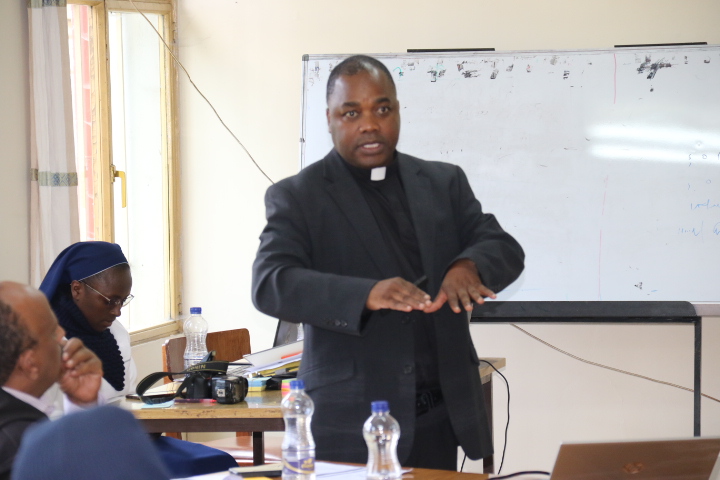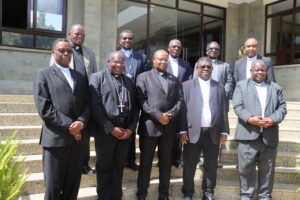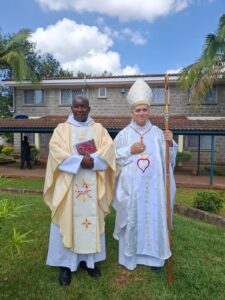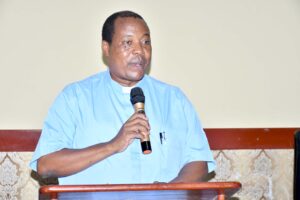AMECEA: Cleric Urges Seminaries to Adopt Theory of Change in Safeguarding Practices

Rev. Fr. Emmanuel Chimombo, AMECEA pastoral coordinator
Sr. Jecinter Antoinette Okoth, FSSA
The coordinator for the Pastoral Department at the Association of Member Episcopal Conferences in Eastern Africa (AMECEA) region has called upon the rectors and staff of senior seminaries in Kenya to embrace the Theory of Change (ToC) for safeguarding practices.
In his message to the participants during a two-day workshop at St. Mary’s Pastoral Centre in Nakuru Diocese, Fr. Emmanuel Chimombo emphasized the need to have safeguarding policies that are up to date in seminaries to respond to the signs of time.
“Responding to the signs of time entails living up to the Theory of Change on matters of Safeguarding aimed at making the AMECEA region safe for minors, vulnerable adults, and everybody,” Fr. Chimombo who has been at the helm of the pastoral department since mid-2016, shared with rectors and seminary staff from, St. Thomas Aquinas, St. Matthias Mulumba, St. Mary’s Molo, Christ the King Nyeri, St. Augustine Mabanga and Blessed Bakanja AMECEA College (BBAC).
He explained further the significance of ToC to participants saying, “Theory of Change is essentially a comprehensive description and illustration of how and why a desired change is expected to happen in a particular context.”
The workshop for seminary formators is a continuation of a consultative meeting that commenced in 2019 after the summit that was held in Rome by Pope Francis on the protection of minors in the Church to the presidents of the Episcopal Conferences of the Catholic Church, the heads of the Oriental Catholic Churches, the representatives of the Union of Superiors General, the members of the Roman Curia and the Council of Cardinals.
In the Bishops’ summit held five years ago, one of the strategies that were highlighted to help end violence against children was formation.
There is a need “For requiring criteria for the selection and training of candidates to the priesthood that are not simply negative, concerned above all with excluding problematic personalities, but also positive, providing a balanced process of formation for suitable candidates, fostering holiness and the virtue of chastity,” the message read in parts and continued, “the life of the celibate priest, which engages the whole man so totally and so sensitively, excludes those of insufficient physical, psychic and moral qualifications. Nor should anyone pretend that grace supplies for the defects of nature in such a man” .


